Recently, the Zhejiang Department of Education and Zhejiang Department of Commerce jointly announced the list of the second batch of the Zhejiang Province Silk Road Institutes. The China-Philippines Silk Road Institute of Economics and Trade, founded under the auspices of ZJIET, was selected for the honor despite the fierce competition. At this point, all of the four ZJIET-co-sponsored overseas Silk Road Institutes have been included in the Zhejiang Belt & Road Initiatives Silk Road Institutes list, aking ZJIET the biggest contributor in the province.
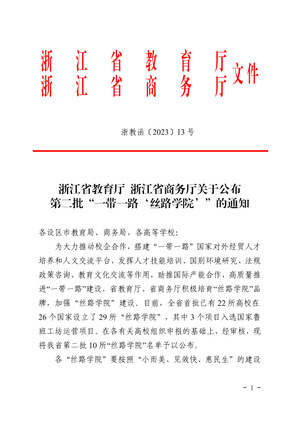
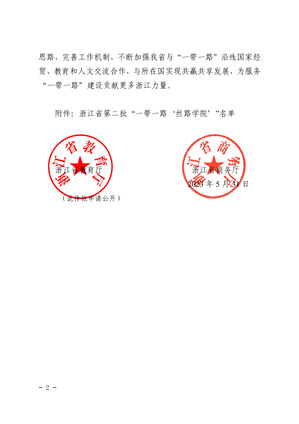
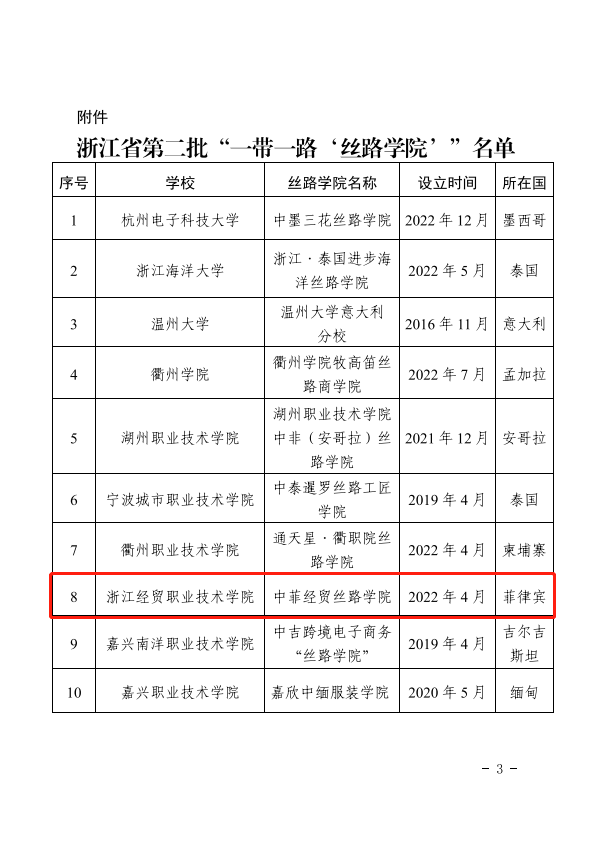
Since the bidding for the second batch of Silk Road Institutes, more than 30 colleges and universities in the province have applied, and 10 have been approved after review, six of which are higher vocational colleges.
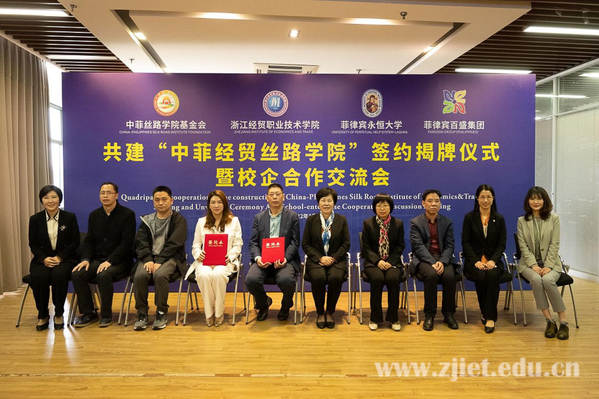
The China-Philippines Silk Road Institute of Economics and Trade is an overseas educational establishment jointly built by ZJIET with the Philippines-Zhejiang General Chamber of Commerce, Parkson Group Philippines and the University of Perpetual Help System DALTA. Officially inaugurated in April 2022, it has focused on the training of local talents in cross-border e-commerce and agricultural products circulation in the Philippines. Through building teaching and practice bases at home and abroad, it trains high-tech and high-quallity skillful talents in digital technology and operation in China and the Philippines, explores the enrollment - training - internship - employment four-in-one oriented training mechanism for visiting students, and continuously promotes the cultural and humanity exchanges between youths of the two nations. Up to now, the Silk Road Institute has run training programs for about a hundred teachers and students from the University of Perpetual Help System DALTA, such as Chinese Language + New Media Operation and Chinese Language + Traditional Culture and so on. It has also provided technical services and talent support to a number of Chinese enterprises in their going global business expansion.
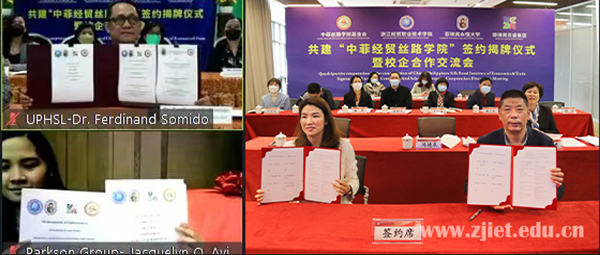
In recent years, ZJIET has strived to implement the Ministry of Education issued Act of Promoting the Co-building of BDI Education, focusing on serving the national strategy and regional economic development, reinforcing the mission of vocational education, actively connecting with the BDI national educational institutions, provincial or multinational enterprises, and working on multi-type and multi-channel going global practices and exploration. At present, ZJIET has established cooperative relations with more than 10 countries along the Belt and Road. By establishing Chinese-foreign co-educational institutions, overseas teaching sites, and international industry-school-research cooperation platforms, ZJIET has created local internationalized and overseas localized talent training models as its contributions to the development of going global enterprises at home and abroad. ZJIET remains actively committed to spreading the Chinese artisanship, advanced vocational education experiences, and distinctive language and culture, effectively promoting cultural exchanges and mutual learning and sharing of technical skills under the Belt and Road Initiatives.
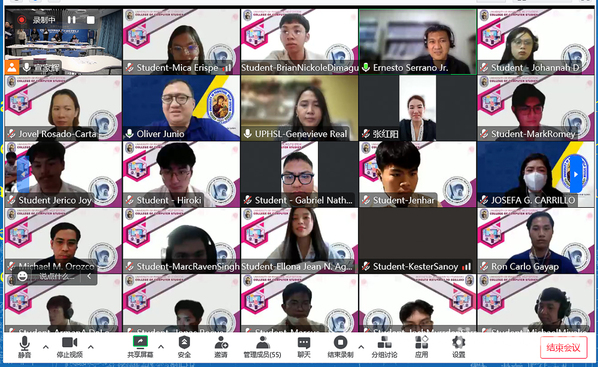
In the next step, ZJIET will adhere to the guidelines of building projects that are small but good, with quick result, and beneficial to people's lives as proposed by the Zhejiang Department of Education. Following the government directories such as the Guiding Opinions on Promoting the Construction of Silk Road Institutes along the Belt and Road and benchmarking Luban Workshop Operation Project Assessment Standard (Trial) and Luban Workshop Construction Regulations, ZJIET will further improve the working mechanism of the Silk Road Institutes and improve the quality of talent training to achieve a win-win situation and shared development with the host countries as its share of contributions to the construction of the Belt and Road Initiatives.

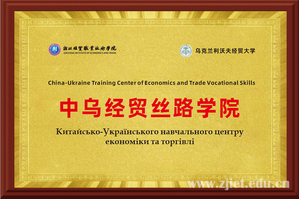
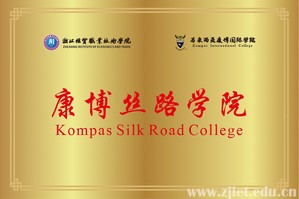
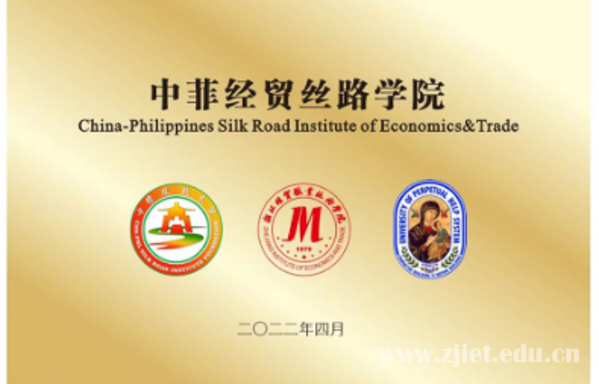
In June 2022, the ZJIET-co-sponsored China-Uzbekistan Silk Road Institute of Economics and Trade, Kompas Silk Road College and Thai-China Rayong Silk Road School were successfully enlisted in the first batch of the 29 Zhejiang Silk Road Schools along the Belt and Road.

